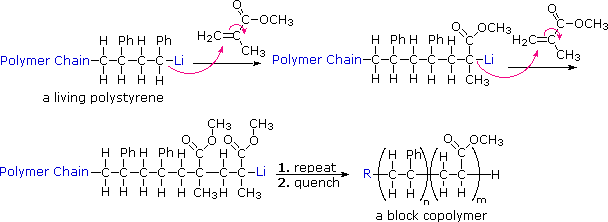Polymers in Building And Construction: Stronger, Lighter in weight, and Extra Durable
Wiki Article
Checking Out the Varied Applications and Advantages of Polymers in Different Industries
Polymers, with their diverse range of residential or commercial properties and performances, have actually become indispensable in different markets, each reaping one-of-a-kind benefits from their application. From boosting safety and performance in the auto market to reinventing medical gadgets in the health care sector, polymers play a pivotal duty.Automotive Market Applications
Polymers play a crucial duty in enhancing the efficiency and sturdiness of numerous parts within the vehicle industry. These flexible products are extensively utilized in the manufacturing of various parts, ranging from indoor components to under-the-hood applications. One noticeable usage of polymers in the automotive market remains in the manufacturing of light-weight elements. By replacing standard steel components with polymer-based choices, automobiles can achieve improved gas efficiency without compromising on stamina or security.

Healthcare Sector Benefits
In various healthcare applications, the advantages of using polymers are widely identified for their varied series of helpful homes. Polymers play a crucial duty in the health care industry due to their flexibility, biocompatibility, and cost-effectiveness. One of the key benefits of polymers in medical care is their capability to be customized to specific requirements, such as versatility, resilience, and biodegradability, making them excellent for a wide variety of clinical applications.Polymer-based products are extensively made use of in clinical devices, such as catheters, implants, prosthetics, and medication distribution systems, due to their biocompatibility and capacity to imitate all-natural cells. These products can reduce the threat of allergies or rejections, boosting patient safety and outcomes. In addition, polymers are lightweight, making them suitable for wearable medical gadgets and guaranteeing client convenience.
Furthermore, polymers make it possible for the development of cutting-edge therapy methods, such as hydrogels for cells engineering and nanocomposites for targeted medicine shipment. Their simplicity of handling and sterilization makes them crucial for maintaining high requirements of health in medical care setups. In general, the diverse benefits of polymers contribute dramatically to innovations in clinical innovation and client care.
Environmental Advantages of Polymers

Additionally, polymers can add to power savings due to their light-weight nature. In industries such as transport, lightweight polymer products can help in reducing gas usage and greenhouse gas emissions. In addition, polymers can allow the advancement of energy-efficient items such as insulation products that enhance energy preservation in structures.
Moreover, polymers play a vital duty in lowering water pollution. For instance, using polymer-based filtering systems can properly get rid of pollutants and impurities from wastewater, securing water sources and communities. Overall, the ecological advantages of polymers make them important assets in promoting sustainability and eco-friendly methods across different markets.
Polymers in Electronic Devices and Innovation
Taking into consideration the increasing need for cutting-edge and sustainable options in contemporary sectors, the integration of advanced polymer technologies in the world of electronics and innovation has actually become a crucial technique for driving efficiency and performance. Polymers have you could check here transformed the electronics industry by making it possible for the production of lighter, much more adaptable, and long lasting digital tools. From smart devices to clinical tools, polymers play an essential role in boosting item layout and performance.One considerable advantage of polymers in electronics is their protecting residential properties, which assist secure fragile digital components from ecological factors and electrical interference. In addition, polymers are necessary in the development of adaptable display screens, wearable innovation, and published electronic devices, supplying limitless possibilities for producing wise and interconnected gadgets.
Moreover, the use of polymers in electronic packaging has resulted in improvements in miniaturization and thermal administration, boosting the overall performance and integrity of electronic systems. As modern technology remains to evolve, the flexibility and flexibility of polymers will most certainly drive even more innovation in the electronics industry, forming the future of technology.
Function of Polymers in Construction and Framework
The integration of advanced polymer products Click This Link in construction and infrastructure tasks has changed the method frameworks are designed and integrated in contemporary times. Polymers supply many benefits in the construction industry due to their flexibility, durability, and cost-effectiveness. One essential function of polymers in building and construction is their use in coverings and sealers, providing defense against environmental aspects such as moisture, UV radiation, and corrosion. In addition, polymers are utilized in the production of lightweight and high-strength composite products, improving the architectural honesty of buildings while reducing total weight.Furthermore, polymers play a vital duty in sustainable construction methods by allowing the development of energy-efficient frameworks. Shielding materials made from polymers help control interior temperature levels, lowering the demand for heating and cooling down systems and inevitably lowering energy consumption - Polymers.
Final Thought
In conclusion, polymers play a crucial role in numerous markets such as auto, healthcare, environmental, electronic devices, and building. From improving fuel performance in vehicles to improving medical devices, polymers use various advantages.Report this wiki page